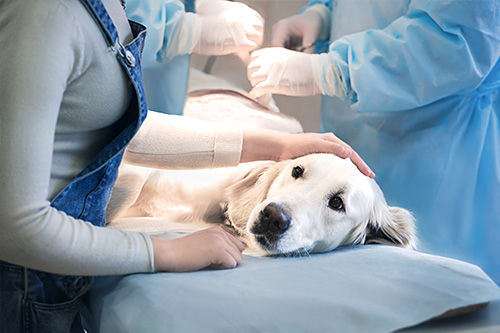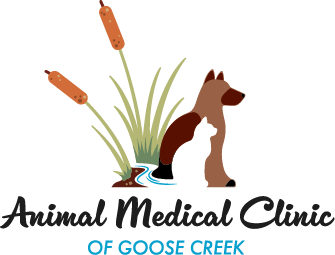
We perform many types of soft tissue surgeries at our clinic. Soft tissue surgeries are those that are not associated with bone. These surgeries can provide many benefits to pets.
Probably the most common soft tissue surgery performed on pets is the removal of masses or lumps. Most of these masses, once removed and tested, are found to be benign (nonharmful); however, occasionally they are more serious. Early removal and accurate diagnosis of a lump are necessary to improve the outcome in your pet if the mass is cancerous.
Sometimes pets may ingest a foreign or non-food object that may cause an injury or blockage. Surgical intervention to remove the foreign body may be necessary to prevent irreversible damage or critical illness. Items that become trapped in the digestive tract can quickly become an emergency situation.
If your dog suffers from bladder stones, surgical intervention can remove the stones relieving pain and discomfort and removing possibility of blockage. Bladder stones are more common in certain pet breeds, but can also result from untreated crystalluria or infections. Once the stones are removed, your veterinarian will send them to the laboratory to reveal the type of prevention that will work best to help prevent future reoccurrences.
We offer Gastropexy to prevent Gastric Dilatation Volvulus(GDV) also known as bloat in large breed dogs. During a gastropexy, the dog’s stomach is sutured to the abdominal wall in the normal anatomic position. This prevents the stomach from rotating if it were to fill with gas. While a gastropexy does not fully protect a dog from bloat, it greatly reduces the risk of fatal consequences.
Stenotic nares surgery is performed to correct smaller then needed nostril openings in brachycephalic breeds(most commonly). Incisions are made and excess tissue is removed to make larger nasal openings and allow better breathing for the pet.
Vulvoplasty is offered to correct a conformational issue called a recessed vulva in female pets. The vulva being recessed behind layers or folds of skin causes urine and debris to be trapped causing vaginitis or urinary tract infections. During the surgical correction, extra folds of tissue are removed allowing the vulva to conform more normally.
Surgery can also help resolve several problems related to the eyes. Tearing in your pet’s eyes can mean an infection is present or may be a sign that the cornea (outer layer of the eye) has been damaged. Surgery may allow the cornea to heal faster with less scarring, improving your pet’s ability to see. In some pets, the eyelashes may actually damage the cornea. Surgical intervention improves comfort in these pets, reduces the chances of corneal scarring, and enhances the pet’s vision in the long term.
Please contact us if you’d like to discuss how soft tissue surgery might be able to help your pet.

